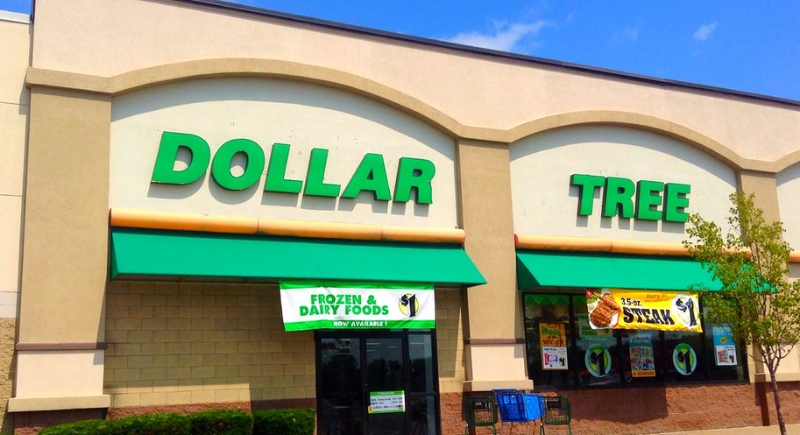10 Industries That Thrive Even During Recessions
When the economy hits the brakes, most industries feel the jolt. But not all of them skid. Some sectors just keep cruising, either because they meet essential needs or simply adapt better to tighter budgets.
In fact, these industries not only withstand recessions but, in many cases, see increased relevance when uncertainty dominates. Let’s learn about these more.
Healthcare Providers Never Fall Off the Radar

Credit: Getty Images
You can’t reschedule a broken bone or put off insulin because the stock market dipped. Whether it’s chronic care, emergencies, or routine prescriptions, healthcare usage remains steady. Pharmaceutical firms and hospitals benefit from this consistency, though not all players fare equally.
Grocery Chains Serve Recession-Driven Habits

Credit: pexels
When restaurant tabs feel steep, kitchens heat up. Grocery chains see a boost as more folks opt to cook at home. Stores that focus on bulk buys or budget brands—like Costco or Aldi—often ring up higher sales.
Auto Repair Shops Keep Engines And Margins Running

Credit: Getty Images
Big-ticket purchases like cars often get delayed in tough times, keeping older vehicles on the road longer. That boosts demand for repairs and maintenance. Mechanics, parts suppliers, and tire shops often see a bump as people prioritize fixing over replacing, especially with credit access tightening for new auto loans.
Discount Stores Attract Broader Audiences

Credit: flickr
Dollar stores and discount retailers thrive when shoppers trade down. What’s seen as budget-friendly in normal times becomes a lifeline during a crunch. These stores step up with affordable basics that keep shelves moving and shoppers coming back.
Accounting Firms Step Up During Fiscal Anxiety

Credit: flickr
When people fear losing control of their finances, they seek help. Tax preparation, cash flow fixes, and assistance with government aid programs all drive traffic to accountants. Small businesses especially lean on pros who can help them stay afloat.
Financial Advisors Become Steady Hands Amid Volatility

Credit: Canva
Recession jitters send people straight to their financial planners. Individuals worry about retirement portfolios and emergency savings. Businesses reassess investment plans. Advisors who stay cool under pressure become essential partners in navigating shaky ground.
Home Maintenance Retailers Thrive on DIY Shifts

Credit: Canva
With moves postponed and home equity dreams on hold, people start fixing up instead of packing up. Hardware stores benefit as people tackle small renovations themselves, both out of necessity and for comfort. Home improvement chains like Lowe’s and Home Depot typically report resilient earnings as the DIY market grows.
Technology Support Becomes Indispensable

Credit: Getty Images
Recessions don’t stop Zoom calls, remote work, or your laptop from crashing mid-meeting. If anything, tech dependency deepens. That’s a win for IT services, cybersecurity firms, and any company keeping the digital lights on. Companies like NortonLifeLock thrived in 2020, not despite the recession, but because secure and stable tech became non-negotiable.
Pharmaceutical Companies Benefit From Necessity, Not Choice

Credit: Getty Images
Medicines, particularly for chronic and infectious conditions, stay in demand regardless of economic sentiment. Regeneron and Gilead saw market gains during the pandemic-linked downturn thanks to COVID-related treatments. Public health urgency has a way of fast-tracking relevance.
Property Management Meets Shifting Housing Needs

Credit: Prostock-studio
Recessions slow home buying, but they don’t stop people from needing places to live. Renting becomes a fallback or preferred choice for those priced out of ownership. As turnover and downsizing increase, property managers and landlords see greater demand. This is especially seen happening in crowded urban markets.
Streaming Platforms Win Time, if Not Always Money

Credit: Getty Images
When budgets shrink, entertainment options change. Streaming services like Netflix drew huge subscriber growth during early 2020 as people sought low-cost distractions. They’re cheaper than a night out and always available.
Courier Services Ride Out Mobility Limits

Credit: pexels
A drop in consumer spending doesn’t mean an end to shopping. It just moves online. Recessions often turbocharge e-commerce, and couriers are the lifeline that makes it all work. Someone’s got to deliver essentials and impulse buys.
Pet Care Holds Firm as Loyalty Runs Deep

Credit: Getty Images
People don’t scale back easily on their pets. They’re family, not a luxury item. Thus, pet-related services tend to retain business through downturns. In fact, more time at home can mean more attention (and spending) on pets.
Home Staging Finds a Niche in Tough Real Estate Markets

Credit: pexels
Trying to sell property in a down market is difficult, which boosts demand for staging professionals. Sellers look for every possible edge to make listings stand out. This sector combines design skills and real estate know-how.
Childcare Businesses Remain Essential for Working Parents

Credit: pexels
Work doesn’t always stop during a recession, especially not for essential workers or parents with limited flexibility. Childcare centers remain crucial and give families the support they need to keep the lights (and careers) on.